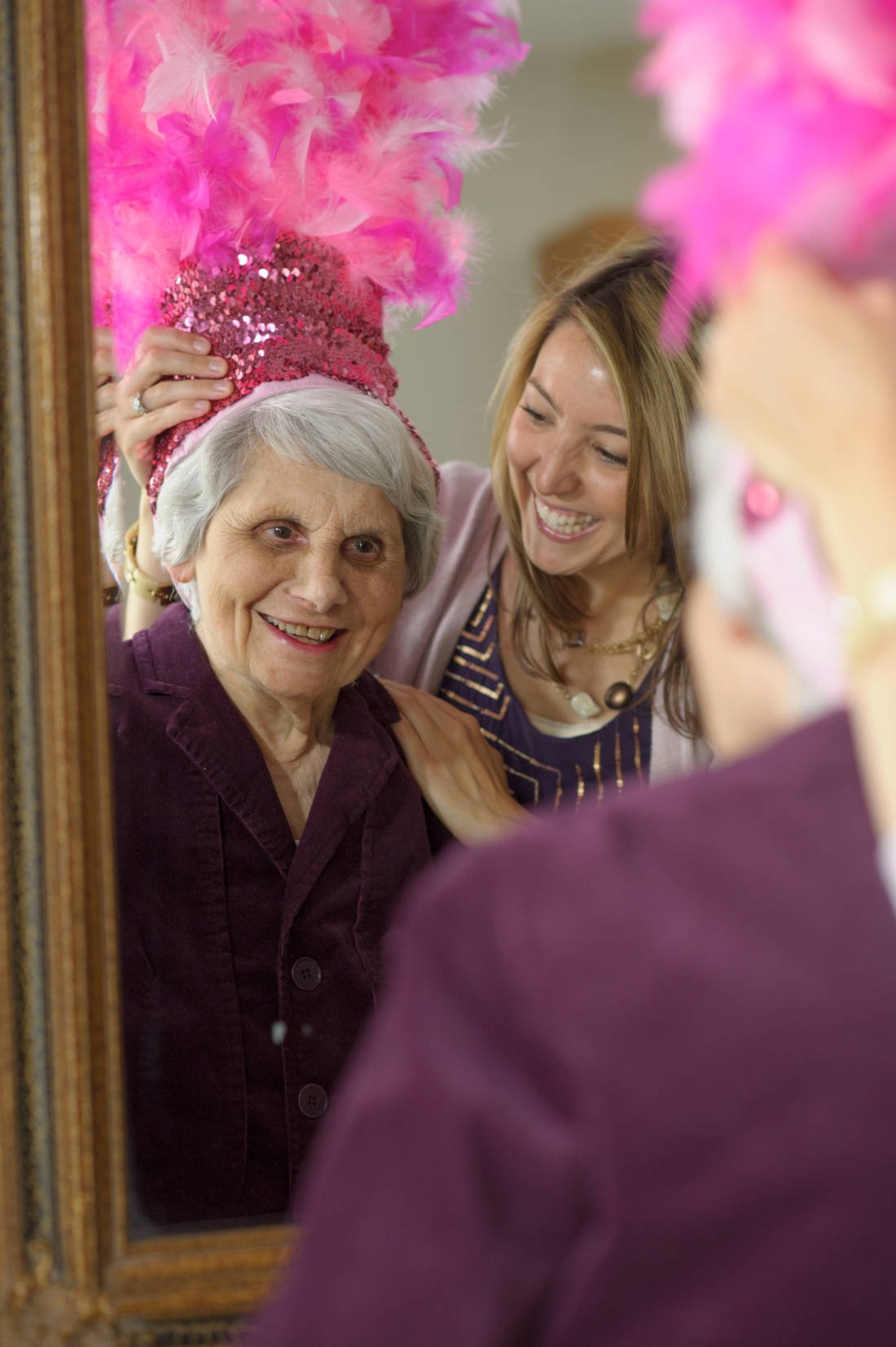Am I Spending Too Much Time Caring for My Aging Parent?
assisted living | caregiver tips | Aging & Caregiving
 Caregiving is neither easy nor simple. In fact, it can sometimes feel like a relentless, overwhelming and around-the-clock job.
Caregiving is neither easy nor simple. In fact, it can sometimes feel like a relentless, overwhelming and around-the-clock job.
An abundance of research points to the long-term effects of caregiver stress while reinforcing the need for caregivers to “take care of themselves.”
But how do you know when you’re taking on too much, and what can you do about it? Let’s take a closer look at this common caregiver dilemma.
A Look at the Facts
According to a joint study by the National Alliance for Caregiving and the AARP, 29 percent of the U.S. population -- more than 65 million people -- spend at least 20 hours a week caring for ill, disabled, or older family members or friends.
Thirteen percent of family caregivers, meanwhile, spend 40 hours or more a week on care. Just how great a role do family caregivers play in the healthcare system? A survey by the National Alliance for Caregiving and Evercare dubbed them the “foundation of long-term care.”
Factor in the reality that more than 37 percent of caregivers are married, employed, and have children or grandchildren under the age of 18 living with them, the potential fallout is clear. Between work and family obligations, caregivers are frequently overburdened by essential responsibilities which fall only on them.
When to Say "When"
While there’s no specific formula to determine how much is too much when it comes to caregiving, there are some clear signs of caregiver stress to be on the lookout for. The Cleveland Clinic offers the following signs of impending burnout:
- withdrawal from social events and activities
- mood swings
- feelings of hopelessness and irritability
- appetite, weight and sleep changes
- increased bouts of sickness
- physical and emotional exhaustion
- dangerous feelings toward yourself or your loved one
If these behaviors sound familiar, it’s likely that you are doing too much. If you are your loved one’s primary caregiver, you are also at increased risk. And while stepping away during a time of need can be challenging, it is sometimes not an option, but a necessity.
Take A Time Out
Everyone can use a “time out” now and again -- particularly caregivers. If you have been neglecting your health, it’s critical to check in with your doctor. He/she will not only make sure that you’re not at risk of any physical or mental health issues, but can also offer information about resources and support for caregivers. Make sure you let your doctor know if you feel you are unable to continue on as a caregiver to your aging parent or other family member.
However, your doctor is only one source of support. While you may not like to complain, research shows that you have good reason to: voicing your fears and frustrations can be a valuable tool in managing stress. Whether you join an online support group or simply share your feelings with a friend, you can gain both emotional support as well as some time away.
Respite care services, meanwhile, offer temporary breaks for caregivers. Check out an assisted living community and inquire about a respite stay or trial stay, which would would offer support for both you and your loved one. Many communities can even provide a furnished apartment for your loved one, which would allow for a convenient move-in process.
For more information on respite care or other caregiver support services, contact your local AARP chapter or your local Agency on Aging.
And remember... your emotions are normal and valid; feeling frustrated or strained doesn’t mean you're a bad caregiver.
Caregiving can be an all-encompassing responsibility and the truth is there is no single determinant of whether you’re doing too much. However, understanding caregiver burnout and taking steps to keep it at bay can be a valuable part of ensuring your ongoing good health.
Key Takeaways
- Caregivers spend an inordinate amount of time on caregiving duties, which can take a toll on your physical, mental, and financial health.
- While “too much” can’t be quantified in one simple way, understanding the signs and symptoms of caregiver burnout can help you avoid its pitfalls.
- Taking steps to ensure time off -- even though it can be hard to do -- is an essential part of any caregiver’s long-term health and wellness.
About Marissa Salvesen
My journey into the world of senior living began when I started working for United Methodist Homes in 2010. Starting as an Activities Director at one of our award-winning assisted and independent living communities and then transitioning to Marketing and Promotions Manager for UMH, I now work as the Manager of Mission Development, fostering the Mission and Values of our organization. I love sharing stories about the many ways we build meaningful relationships and enrich the lives of those we serve, and am proud to be part of building UMH’s 140-year legacy of caring. Wondering what makes our communities such special places to live and work? Connect with me and find out!

Our Blog is a 2016 Platinum Generations Award Winner! The Generations Award is an annual international competition for excellence in senior marketing recognizing professionals who have communicated to the 50+ Mature Markets.



